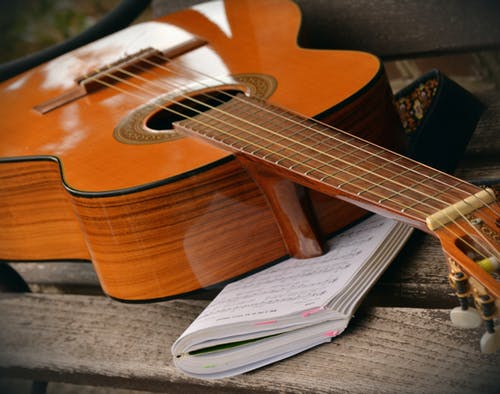
What do Woody Guthrie and Ed Sheeran have in common? I’ll give you one hint, it’s not the ginger hair. Surprisingly enough, they’re both considered folk artists.
Hearing Guthrie’s “This Land is Your Land” and Sheeran’s “Shape of You” on the same playlist would be unexpected to say the least. Folk music has such a wide range that some people can’t tell what the defining factor is anymore (and by “some people,” I most definitely mean myself). While I personally think defining folk music is outdated, there is no denying its cultural impact.
By definition, folk music is the music of the people. Traditional folk music originated in popular culture and has been passed down through generations by oral tradition. A key characteristic of the original genre is that folk songs used to be predominantly of unknown authorship.
Mark Twain affirmed this idea when he said “a folk song is a song that nobody ever wrote.” Folk music was made as a collaborative effort where different social groups could band together and develop a group expression through music. Often showcasing plights of the lower class, folk songs commonly depicted stories of wars, revolutions, triumphs, love affairs, and separations- anything representing the “sign of the times” (paying homage to former columnist and alumni Amanda Miller, I will never pass up an opportunity for a Harry Styles reference).
Nowadays, it would be pretty strange to not know, or at least, not be able to find out who wrote a song. Folk music has transformed from songs by the people to songs written by one person about the people.
Another change in the genre lies in the complexity of the songs themselves. Folk songs used to be simple so everyone could participate in creating and singing them easily. Now that artists are composing folk songs, a wider range of technical and artistic perfection is present. Additionally, an increased access to technology has broadened our cultural exposure, allowing other genres to become increasingly influenced by folk music.
Choosing to label just one genre as “the music of the people” therefore seems inaccurate and too exclusive. All songs are technically folk songs. All music is the battle cry of some group or another. Are the worries of particular groups of people valued more than others?
The genre has undoubtedly changed. I think we’ve subconsciously recognized folk as more of a certain sound rather than the sole musical identity of humanity’s struggles. The word “folk” is almost used more as an adjective to describe another genre of music such as folk rock.
When I think of folk music now, the first things that come to mind are acoustic instruments and natural voices. Acoustic music seems to sound more authentic, whereas electronically created music is manufactured. In this way, the term “folk” has become synonymous with “acoustic”.
I hear the strum of a guitar and immediately think of a singer performing folk songs in a vintage coffee shop. Last month, I was studying at Full Circle Bookstore’s Garden Cafe while local duo Kestral and Kite was performing.
While Brantley Cowan and Amanda Fortney, the bands’ members, describe their sound as acoustic-based indie, I would assume they were a folk group merely because of the authentic quality of their tone.
To tell you the truth, I’ve come to think the word “folk” is redundant and confusing. One cannot simply describe a song by calling it “folk” without some other descriptive qualities.
It’d be a lot easier if we just rid the word from our vocabularies all together.


Leave a Reply